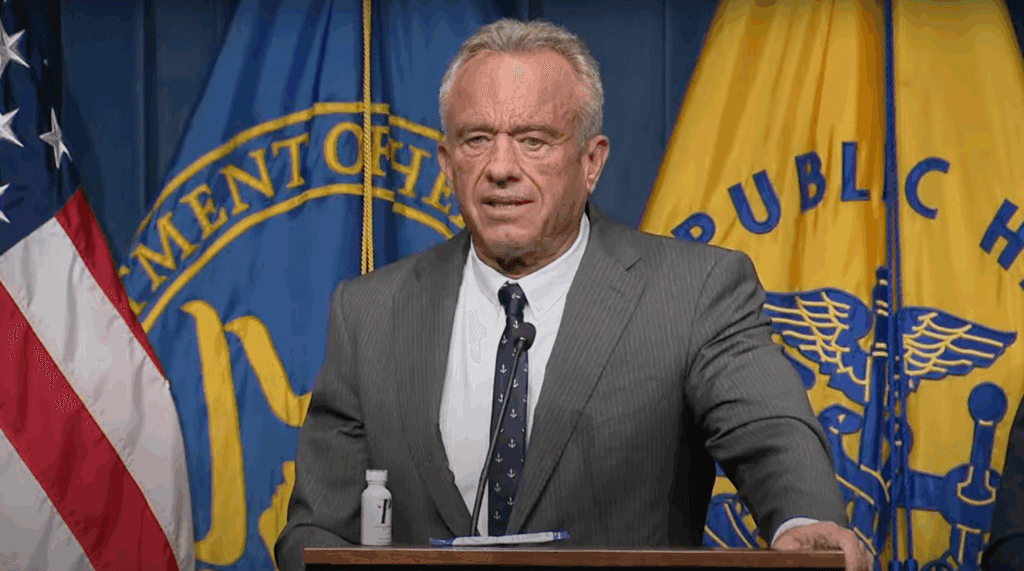(Oregon Right to Life) — The U.S. Department of Health and Human Services (HHS) under the Trump administration this week announced plans to reform the organ transplant system following “horrifying” revelations concerning organ procurement practices, including 28 people who may not have been deceased when organ procurement began. While organ donation can be a life-saving gift, malpractice and unethical practices jeopardize the dignity and right to life of donors.
The HHS, headed by Secretary Robert F. Kennedy Jr., made the announcement in a July 21 press release, citing a recent investigation by its Health Resources and Services Administration (HRSA).
“Our findings show that hospitals allowed the organ procurement process to begin when patients showed signs of life, and this is horrifying,” Secretary Kennedy said in the statement, which asserted that the HHS findings “confirm what the Trump administration has long warned: entrenched bureaucracies, outdated systems, and reckless disregard for human life have failed to protect our most vulnerable citizens.”
“The organ procurement organizations that coordinate access to transplants will be held accountable,” Secretary Kennedy said. “The entire system must be fixed to ensure that every potential donor’s life is treated with the sanctity it deserves.”
Pro-life advocates have responded positively to the announcement.
“The pro-life movement holds the sanctity of every human life as paramount, and these findings are deeply disturbing,” National Right to Life president Carol Tobias said in a July 23 press release.
“National Right to Life welcomes the HHS investigation and the administration’s decisive response to deeply troubling revelations regarding premature organ procurements,” Tobias said.
According to the HHS statement, the findings came after the HRSA ordered the Organ Procurement and Transplantation Network (OPTN) to investigate “a disturbing case involving potentially preventable harm to a neurologically injured patient by the federally-funded organ procurement organization (OPO) serving Kentucky, southwest Ohio, and part of West Virginia.”
The case in question was that of then-32-year-old Anthony Thomas Hoover II, who was hospitalized in 2021 for a drug overdose, according to The New York Times. Unresponsive, Hoover was removed from life support with the permission of his family. The federally-funded OPO mentioned in the HHS statement – formerly called Kentucky Organ Donor Affiliates and now called Network for Hope – began the process of procuring Hoover’s organs.
However, he showed obvious signs of life – even including “thrashing on the bed” – and he was ultimately sedated, Catholic News Agency highlighted. Finally, amid discomfort expressed by hospital staff who witnessed his observable reflexes and argued that organ harvesting in his case was tantamount to euthanasia, a physician stopped the procurement procedure.
Hoover survived and is still alive today, four years after the incident. However, despite the disturbing circumstances, Hoover’s case was closed by an OPTN committee with no action taken during the previous presidential administration, the HHS said.
Prompted by examining Hoover’s case, the HRSA ultimately carried out an independent investigation of 351 cases (in which organ donation had been authorized but the procedures were not carried out) that “revealed clear negligence after the previous OPTN Board of Directors claimed to find no major concerns in their internal review,” according to the July 21 statement.
The investigation reportedly uncovered the following findings:
- “103 cases (29.3%) showed concerning features, including 73 patients with neurological signs incompatible with organ donation.
- At least 28 patients may not have been deceased at the time organ procurement was initiated—raising serious ethical and legal questions.
- Evidence pointed to poor neurologic assessments, lack of coordination with medical teams, questionable consent practices, and misclassification of causes of death, particularly in overdose cases.”
“These were not unique. These are horrific reports,” House subcommittee Chair Dr. John Joyce, a Republican from Pennsylvania, said in a Tuesday hearing. “It affirms the need for this investigation to occur.”
The findings align with a July 20 report by The New York Times that platformed numerous cases in which patients scheduled for authorized organ donation reportedly regained consciousness, stopping procurement efforts.
RELATED: American Medical Association Reaffirms Opposition to Assisted Suicide
“Allowing organ procurement processes to move forward on patients who may still be alive contradicts our fundamental moral principles and undermines public trust in the transplant system,” Tobias said in the National Right to Life press release, arguing that the disturbing accounts are “evidence of structural flaws that demand accountability, transparency, and immediate reform.”
The HHS declared in its statement that Network for Hope “must conduct a full root cause analysis” and “adopt a formal procedure allowing any staff member to halt a donation process if patient safety concerns arise.” Senator Kennedy threatened to decertify the organization if it does not carry out the prescribed analysis and create new safety regulations.
And as Kennedy’s remarks indicate, the HHS review’s impact will not be isolated to Network for Hope.
In light of the investigation, the HRSA directed the OPTN to “improve safeguards and monitoring at the national level,” including requiring the reporting of “safety-related stoppages of organ donation” to regulators, and updating “policies to strengthen organ procurement safety and provide accurate, complete information about the donation process to families and hospitals,” per the press release.
“HHS is restoring integrity and transparency to organ procurement and transplant policy by putting patients’ lives first,” the HHS statement said, adding that the “reforms are essential to restoring trust, ensuring informed consent, and protecting the rights and dignity of prospective donors and their families.”
On Tuesday, Network for Hope CEO Barry Massa testified that his organization is reviewing the HRSA report and the concerns it raised, National Review reported.
“Patient safety is at the forefront of everything that we do,” Massa said in the subcommittee hearing. “I want to assure the subcommittee that Network for Hope will take any appropriate action necessary to continue to implement policies and procedures, to continuously improve, and be better, and most importantly, ensure and promote patient safety.”
National Review reported there are 55 organ procurement organizations throughout the U.S. Around 170 million Americans are registered organ donors, according to 2022 data.




